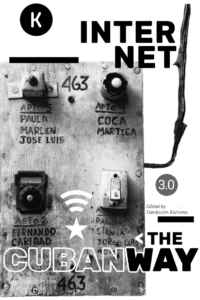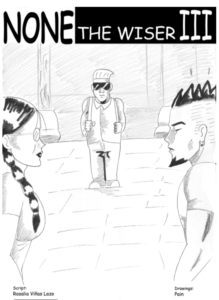 The Internet economy came to change the old paradigm that suggested that the growth of technology in its broadest sense would result in high rates of unemployment. The Internet itself is a repository of knowledge, new forms of work and new possibilities for the productive forces. It is a critical element for economic growth and a catalyst for job creation.
The Internet economy came to change the old paradigm that suggested that the growth of technology in its broadest sense would result in high rates of unemployment. The Internet itself is a repository of knowledge, new forms of work and new possibilities for the productive forces. It is a critical element for economic growth and a catalyst for job creation.
The digital economy has grown since the time it was only about big corporations offering services to a few specialized clients through the Internet to becoming a part of our modern life. As a matter of fact, today, we can say the economy is digital; it is no longer a mere companion or adjective. In this digitized world, ease of access translates into unlimited opportunities for some, and disturbances and isolation for those unable to obtain the adaptation formula.
Today, for example, we prefer to consume entertainment through digital platforms, we choose online services to rent temporary accommodations, or we embark on the development of business applications. Outlining the borders between the digital and traditional economy is increasingly difficult. Our daily economic activities are subordinated to a multiplicity of online connections between people, companies, devices, data and processes.
 In the third issue of Internet the Cuban Way, Regina Coyula and Karina Gálvez investigate and tell ushow, despite the difficulties of Internet access and theprecarious connection they have in Cuba, startups have arisen based more on ingenuity than on the material conditions available. Throughout this article, we can recognize the development of an embryonic Cuban digital economy. Rosalía Viñas, for her part, represents Cuban reality when connecting, in her comic strip None the Wiser, but, above all, she shows us a bit of the local inventiveness when browsing the Internet through her characters Laura, Robe and John.
In the third issue of Internet the Cuban Way, Regina Coyula and Karina Gálvez investigate and tell ushow, despite the difficulties of Internet access and theprecarious connection they have in Cuba, startups have arisen based more on ingenuity than on the material conditions available. Throughout this article, we can recognize the development of an embryonic Cuban digital economy. Rosalía Viñas, for her part, represents Cuban reality when connecting, in her comic strip None the Wiser, but, above all, she shows us a bit of the local inventiveness when browsing the Internet through her characters Laura, Robe and John.
Download it here and help us sharing.
In addition, read the past issues of this serie:
In 2016, we launched the first issue of Internet the Cuban way with the objective of raising awareness among the Cuban population on Internet issues, including those dealing with public policies, human rights and governance. On the other hand, we also share analysis and proposals from a Cuban perspective with regional and international audiences.
In 2017, we shared the second issue of Internet the Cuban way, in which you will find articles of greater discursive maturity and proposals in order to open up the discussion. In addition, we continue with the comic series Atrás del palo, which offers advices on good practices for safe and responsible use of the web, while showing us the Cuban reality in relation to the internet.
